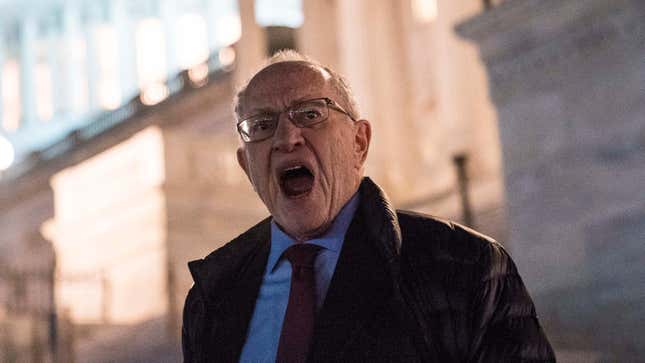The Last Person Who Should Comment on Ghislaine Maxwell’s Conviction Is Alan Dershowitz
The former Harvard professor talked publicly about Jeffrey Epstein's victims without ever mentioning his past as a legal representative for the dead financier.
EntertainmentEntertainment

As you may know, Ghislaine Maxwell was convicted this week of five federal sex-trafficking charges in connection with her grooming of young girls alongside ex-boyfriend, Jeffrey Epstein. She faces 65 years in prison with no sentencing date yet set for the new year. Her conviction sets a precedent for what kind of actions are criminal and part of the sex-trafficking process. So, naturally, in covering this news the BBC needed an expert to comment on Maxwell’s guilty verdict.
Instead of an expert, the BBC turned to disgraced lawyer Alan Dershowitz, who was embroiled with Epstein in more ways than one. Not only is Dershowitz is an accused accomplice of Epstein, but he acted as the late alleged sex trafficker’s lawyer during the 2008 “sweetheart deal.” In 2014, Virginia Roberts Giuffre — who accused Queen Elizabeth II’s favorite son Prince Andrew of sexual abuse — accused Dershowitz of having sex with her when she was as young as 16. Both Dershowitz and Buckingham Palace have denied the accusations. And yet, on Wednesday, Dershowitz appeared on BBC News to comment on the Maxwell verdict.
-

-

-

-

-

-

-

-

-

-

-

-

-

-

-

-

-

-

-

-

-

-

-

-

-

-

-

-

-

-

-

-

-

-

-

-

-

-

-

-








































